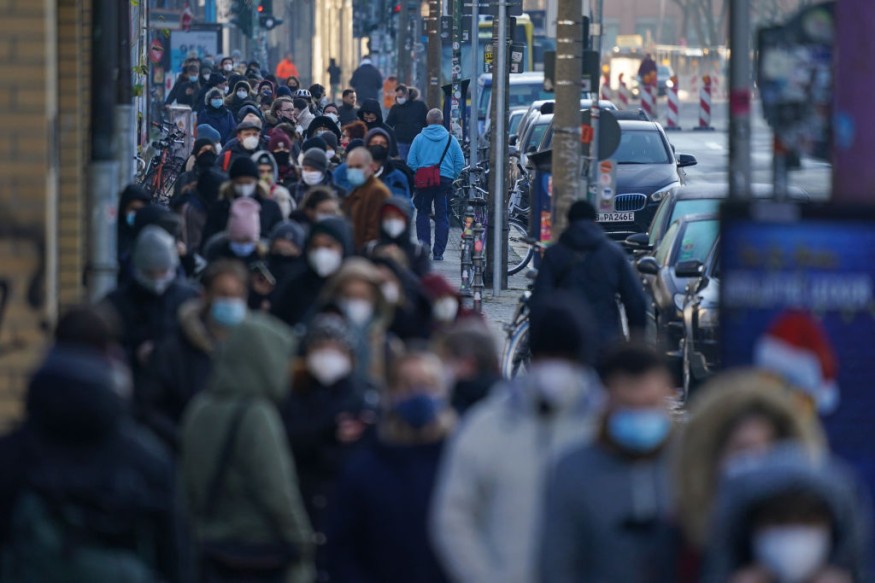New studies show that wearing face masks without social distancing might not be enough to keep the coronavirus from spreading.
The World Health Organisation (WHO) noticed that individuals no longer genuinely stick to physical distance. The technical chief of the WHO Emergency Program, Maria Van Kerkhove, emphasized the significance of a physical space of at least 1 meter (3 feet) or more, including the usage of masks.
A list of steps to curtail the spread of transmission, including carrying masks, keeping physical distance, and routinely and properly washing hands, has been set out by the WHO.

Masks NOT enough to stop the spread of COVID-19 without social distancing
Researchers, whose study is found in the journal Physics of Fluids on Tuesday, used a cough and sneeze modeling machine. They tested five forms of masks without leaking around the edges.
They observed that many tiny sneezes or cough droplets were always able to escape the mask, even though it was snug, in tests that replicated a virus carrier wearing a mask. Therefore, in order to avoid transmission, all virus carriers and sensitive persons should suggest wearing masks.
The team discovered that the fabric masks allowed enough droplets sneeze through so that a person could breathe enough of them in to theoretically become sick with COVID-19 if they stood fewer than six feet apart.
Study author Krishna Kota, an associate professor at New Mexico State University, said that although masking certainly helps. But if people are really close to each other, there is always a risk of transmitting or catching the virus.
Meanwhile, other experiments have shown that 1,000 virus particles are the typical infection threshold for COVID-19, inhaled either all at once or on different occasions.
Moreover, a simple sneeze has the ability to hold up to 200 million particles of the virus.
This suggests that if anyone is near to an infected person wearing one of these masks, enough droplets could break away to make them form COVID-19.
'It is almost inevitable, without a face mask, that several foreign droplets would be passed to the prone individual,' said Kota.
She explained that wearing a mask would give a prone person significant, though not total, security by reducing the amount of droplets of international airborne sneeze and cough that would otherwise reach the person without any of the masks.
Empathy encourages social distance conformity and mask wearing rules
According to Kota, attention needs to be provided whenever necessary to mitigate or discourage near face-to-face or frontal human encounters. Hence, after the COVID-19 crisis, a different report found proof of the importance of empathy in motivating public conformity with health guidelines.
Although the practice of safety precautions involves a degree of self-sacrifice, experts say that empathy is possibly embodied in the decision to obey. In a series of experiments, the researchers investigated whether greater compliance with COVID-19 protection measures would indicate concern to those susceptible to the virus.
The results suggest that presenting details about why the necessity of social distancing alone is not enough to alter popular behavior. Instead, it seems that empathy can be used, particularly during the COVID-19 crisis, as a mechanism to facilitate compliance with public health protection measures.
Check out more news and information on COVID-19 on Science Times.
© 2026 ScienceTimes.com All rights reserved. Do not reproduce without permission. The window to the world of Science Times.











